The Three – The Difference Of Being On The Ground
I will never forget August 29, 2005 when Hurricane Katrina made landfall in New Orleans, Louisiana. As the levees began to give way and fill the 17 wards with the waters of the Mississippi River and Lake Pontchartrain, my heart broke at the sights of devastation that came across my television screen.
Within what felt like the blink of an eye, 80% of the high spirited, culturally rich city sat under murky waters. The images of people sitting on their roofs awaiting rescue was difficult to fathom, and as the waters eventually receded, the photographs of the damage were gut wrenching.
A few weeks later I made my way to New Orleans to serve the city in its recovery efforts. Being on the ground made the devastation that I had previously seen in the news look like a nice city park on a late summer day.
Being on the ground, viewing the damage for myself and having the face-to-face conversations with those who had experienced such loss could not be replaced by newspaper images. I learned of needs that CNN had never mentioned and felt the loss that FOX NEWS could never convey.
It is one thing to view something from a distance, but it is an altogether different experience to be on the ground viewing it with your own eyes, hearing it with your own ears, smelling it with your own nose, and feeling it in person with your own heart.
The theme of this issue of THE THREE is not centered on the city of New Orleans but the transformation that being on the ground makes. Haggai leaders are already on the ground, and by God’s grace, this gives them a distinct advantage in understanding the real needs and the way forward in advancing the hope of the Gospel. We are blessed to partner with those on the frontlines, and there are countless benefits – especially during a pandemic – but for this edition I want to highlight THREE.
1 AWARE
Awareness is having factual knowledge of a situation.
I would like to think I understand what it is like to know how to share the Gospel at a majority Muslim university in a majority Muslim nation in the heart of the
Middle East, but the fact is, I am unaware. That is not the case for *Jabari, who has grown up in the Middle East and as a young man himself attended majority Muslim schools. *Jabari, a Haggai leader, uses his first hand, on the ground awareness as an advantage in discipling the next generation of Christians across the
Middle East region.
*Due to safety concerns we cannot publicly release the identity of this leader.
2 ACTIVE
Active is being engaged in action by work and participation.
It is one thing for me to think about what I might do to help the current medical and economic devastation that is taking place in Brazil due to COVID-19, but it is a
completely different opportunity for Haggai leaders serving in Latin America. Haggai leader, Leonardo Paulino, leads Nations Hope, a nonprofit that seeks to provide relief operations for high-risk children and their families through nutrition, education, housing, and social development programs. Leonardo is one of 122,000+ Haggai leaders around the world who are actively meeting needs and sharing the Gospel.
3 ANNOUNCING
Announcing is to make a declaration.
Right now, with travel restrictions, there are many nations where I could not travel even if I desired to, much less would I be given a platform to make any kind of declaration. Yet, today, even in the midst of a pandemic, there are Haggai leaders like Vasanthi Clement, a solicitor and advocate of the High Court of Malaysia, who have started schools that are declaring and announcing the hope of Jesus through word and deed and equipping students to do the same.
I invite you to join us in praying for the Haggai leaders, who today are aware of their culture, active in meeting needs, and announcing the Gospel across 189 nations.
Together, we can end Gospel poverty,
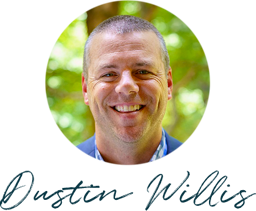
Dustin Willis
Chief Marketing Officer
The Three – The Difference Of Being On The Ground
I will never forget August 29, 2005 when Hurricane Katrina made landfall in New Orleans, Louisiana. As the levees began to give way and fill the 17 wards with the waters of the Mississippi River and Lake Pontchartrain, my heart broke at the sights of devastation that came across my television screen.
Within what felt like the blink of an eye, 80% of the high spirited, culturally rich city sat under murky waters. The images of people sitting on their roofs awaiting rescue was difficult to fathom, and as the waters eventually receded, the photographs of the damage were gut wrenching.
A few weeks later I made my way to New Orleans to serve the city in its recovery efforts. Being on the ground made the devastation that I had previously seen in the news look like a nice city park on a late summer day.
Being on the ground, viewing the damage for myself and having the face-to-face conversations with those who had experienced such loss could not be replaced by newspaper images. I learned of needs that CNN had never mentioned and felt the loss that FOX NEWS could never convey.
It is one thing to view something from a distance, but it is an altogether different experience to be on the ground viewing it with your own eyes, hearing it with your own ears, smelling it with your own nose, and feeling it in person with your own heart.
The theme of this issue of THE THREE is not centered on the city of New Orleans but the transformation that being on the ground makes. Haggai leaders are already on the ground, and by God’s grace, this gives them a distinct advantage in understanding the real needs and the way forward in advancing the hope of the Gospel. We are blessed to partner with those on the frontlines, and there are countless benefits – especially during a pandemic – but for this edition I want to highlight THREE.
1 AWARE
Awareness is having factual knowledge of a situation.
I would like to think I understand what it is like to know how to share the Gospel at a majority Muslim university in a majority Muslim nation in the heart of the
Middle East, but the fact is, I am unaware. That is not the case for *Jabari, who has grown up in the Middle East and as a young man himself attended majority Muslim schools. *Jabari, a Haggai leader, uses his first hand, on the ground awareness as an advantage in discipling the next generation of Christians across the
Middle East region.
*Due to safety concerns we cannot publicly release the identity of this leader.
2 ACTIVE
Active is being engaged in action by work and participation.
It is one thing for me to think about what I might do to help the current medical and economic devastation that is taking place in Brazil due to COVID-19, but it is a
completely different opportunity for Haggai leaders serving in Latin America. Haggai leader, Leonardo Paulino, leads Nations Hope, a nonprofit that seeks to provide relief operations for high-risk children and their families through nutrition, education, housing, and social development programs. Leonardo is one of 122,000+ Haggai leaders around the world who are actively meeting needs and sharing the Gospel.
3 ANNOUNCING
Announcing is to make a declaration.
Right now, with travel restrictions, there are many nations where I could not travel even if I desired to, much less would I be given a platform to make any kind of declaration. Yet, today, even in the midst of a pandemic, there are Haggai leaders like Vasanthi Clement, a solicitor and advocate of the High Court of Malaysia, who have started schools that are declaring and announcing the hope of Jesus through word and deed and equipping students to do the same.
I invite you to join us in praying for the Haggai leaders, who today are aware of their culture, active in meeting needs, and announcing the Gospel across 189 nations.
Together, we can end Gospel poverty,

Dustin Willis
Chief Marketing Officer
The Three – The Difference Of Being On The Ground
I will never forget August 29, 2005 when Hurricane Katrina made landfall in New Orleans, Louisiana. As the levees began to give way and fill the 17 wards with the waters of the Mississippi River and Lake Pontchartrain, my heart broke at the sights of devastation that came across my television screen.
Within what felt like the blink of an eye, 80% of the high spirited, culturally rich city sat under murky waters. The images of people sitting on their roofs awaiting rescue was difficult to fathom, and as the waters eventually receded, the photographs of the damage were gut wrenching.
A few weeks later I made my way to New Orleans to serve the city in its recovery efforts. Being on the ground made the devastation that I had previously seen in the news look like a nice city park on a late summer day.
Being on the ground, viewing the damage for myself and having the face-to-face conversations with those who had experienced such loss could not be replaced by newspaper images. I learned of needs that CNN had never mentioned and felt the loss that FOX NEWS could never convey.
It is one thing to view something from a distance, but it is an altogether different experience to be on the ground viewing it with your own eyes, hearing it with your own ears, smelling it with your own nose, and feeling it in person with your own heart.
The theme of this issue of THE THREE is not centered on the city of New Orleans but the transformation that being on the ground makes. Haggai leaders are already on the ground, and by God’s grace, this gives them a distinct advantage in understanding the real needs and the way forward in advancing the hope of the Gospel. We are blessed to partner with those on the frontlines, and there are countless benefits – especially during a pandemic – but for this edition I want to highlight THREE.
1 AWARE
Awareness is having factual knowledge of a situation.
I would like to think I understand what it is like to know how to share the Gospel at a majority Muslim university in a majority Muslim nation in the heart of the
Middle East, but the fact is, I am unaware. That is not the case for *Jabari, who has grown up in the Middle East and as a young man himself attended majority Muslim schools. *Jabari, a Haggai leader, uses his first hand, on the ground awareness as an advantage in discipling the next generation of Christians across the
Middle East region.
*Due to safety concerns we cannot publicly release the identity of this leader.
2 ACTIVE
Active is being engaged in action by work and participation.
It is one thing for me to think about what I might do to help the current medical and economic devastation that is taking place in Brazil due to COVID-19, but it is a
completely different opportunity for Haggai leaders serving in Latin America. Haggai leader, Leonardo Paulino, leads Nations Hope, a nonprofit that seeks to provide relief operations for high-risk children and their families through nutrition, education, housing, and social development programs. Leonardo is one of 122,000+ Haggai leaders around the world who are actively meeting needs and sharing the Gospel.
3 ANNOUNCING
Announcing is to make a declaration.
Right now, with travel restrictions, there are many nations where I could not travel even if I desired to, much less would I be given a platform to make any kind of declaration. Yet, today, even in the midst of a pandemic, there are Haggai leaders like Vasanthi Clement, a solicitor and advocate of the High Court of Malaysia, who have started schools that are declaring and announcing the hope of Jesus through word and deed and equipping students to do the same.
I invite you to join us in praying for the Haggai leaders, who today are aware of their culture, active in meeting needs, and announcing the Gospel across 189 nations.
Together, we can end Gospel poverty,

Dustin Willis
Chief Marketing Officer
Comments
Comments
-
Precisamos nos solidarizar com os mais necessitados. E fazermos nossa parte, enquanto cristãos.


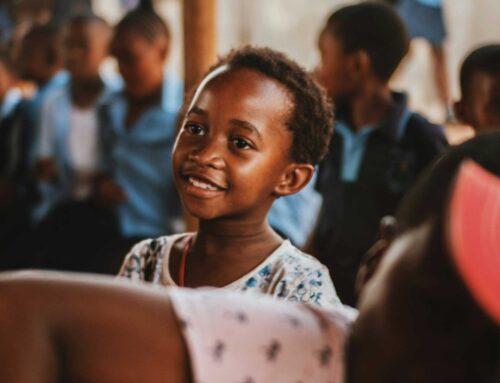
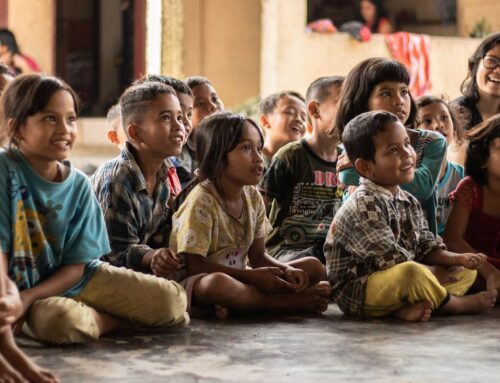
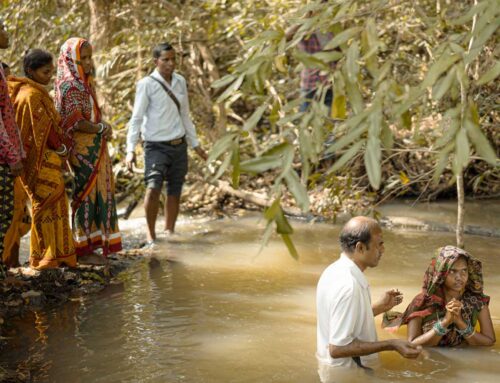
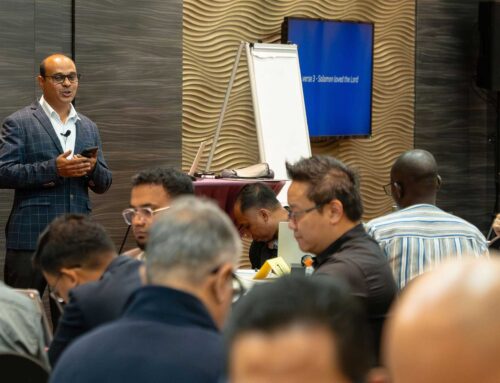
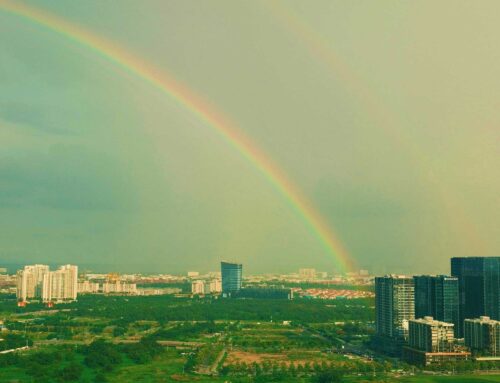
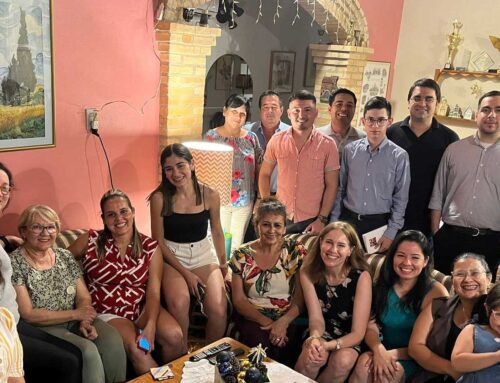








Precisamos nos solidarizar com os mais necessitados. E fazermos nossa parte, enquanto cristãos.